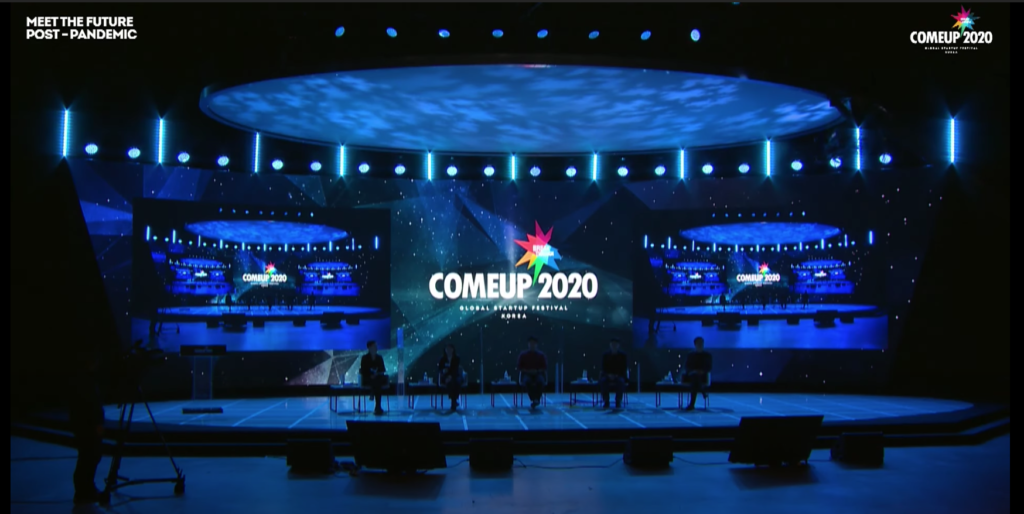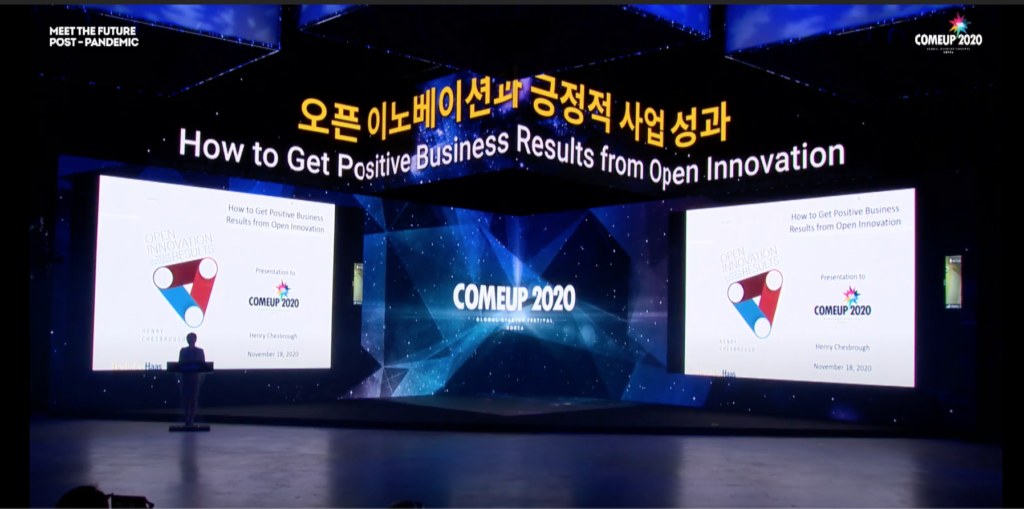AsiaTechDaily – Asia's Leading Tech and Startup Media Platform
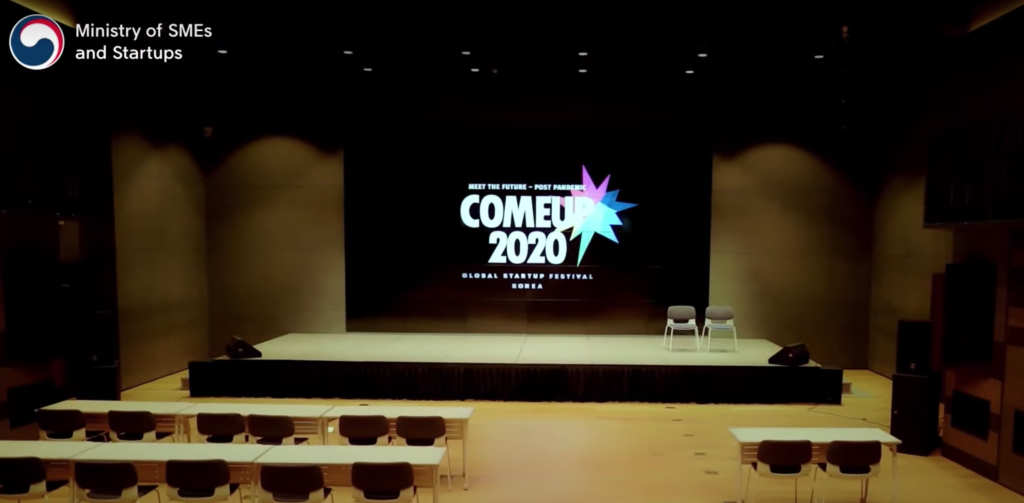
COMEUP 2020- Day 1: An Eventful And Insightful Day
Day 1 of COMEUP 2020 was organized on multiple channels which hosted interesting panel discussions and expert talks on challenges faced during the coronavirus crisis, post-pandemic changes, presentations, startup pitches, mentoring talks, governance & environment, digital healthcare, and Q&A session. Despite being a virtual event this year due to the outbreak of COVID-19, COMEUP 2020 event has lived up to its standard.
The first day of the event saw pitching from COMEUP Stars-120 selected startups and startups from the K-Startup Grand Challenge program. The event was divided into three main sections- main conference, special events, and side events for all three days. COMEUP 2020 included 12 sessions with 114 speakers spread over the three days 19-21st November of the event.
Day one on November 19th started with a blazing dance performance and opening speech by Minister Park Young-sun, the Ministry of SMEs and Startups (MSS), South Korea. President of the Republic of Korea, Moon Jae-In, sent his congratulatory wishes via a video message for the COMEUP 2020 attendees. Sophie Kim, the 2020 COMEUP Organizing Committee Chairperson of the Civil Organizing Committee & CEO of Market Kurly, kicked off the event sessions with a talk on ‘COVID-19 and Fresh New Ideas.’ Expert talks focussed on pandemic challenges, K-Quarantine success & other solutions that could open doors for future technology and development.
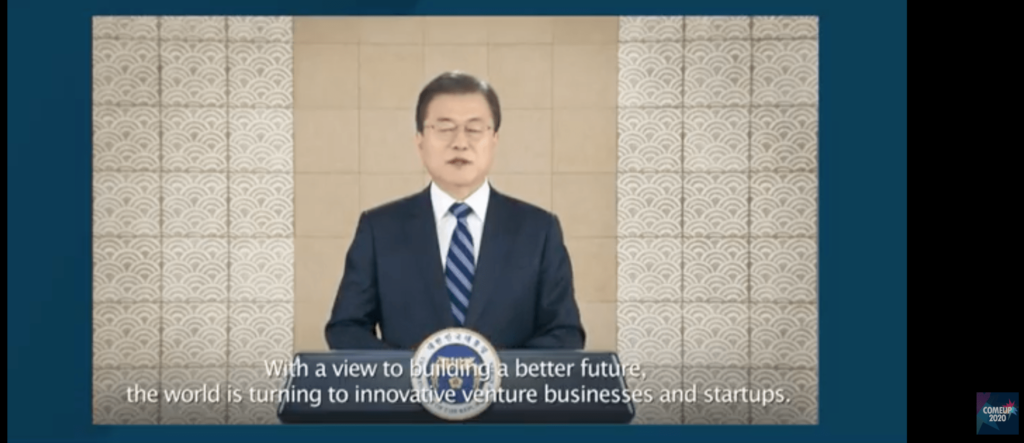
COMEUP 2020 Panel Discussions and Talks on Day 1
The Keynote speech was made on the topic- ‘Fighting against the COVID-19’. SeeGene’s John Yoon Chun spoke about COVID-19 experience and the company’s syndromic assay technology. He also spoke about the company’s in-vitro diagnostics tests, Research & Development in the face of the pandemic. The company’s technology identifies the viruses irrespective of their numbers and also amplifies the human DNA by over a billion times. To improve its sensitivity and specificity, the company applies its molecular diagnostic technology to its K-diagnostics kits.
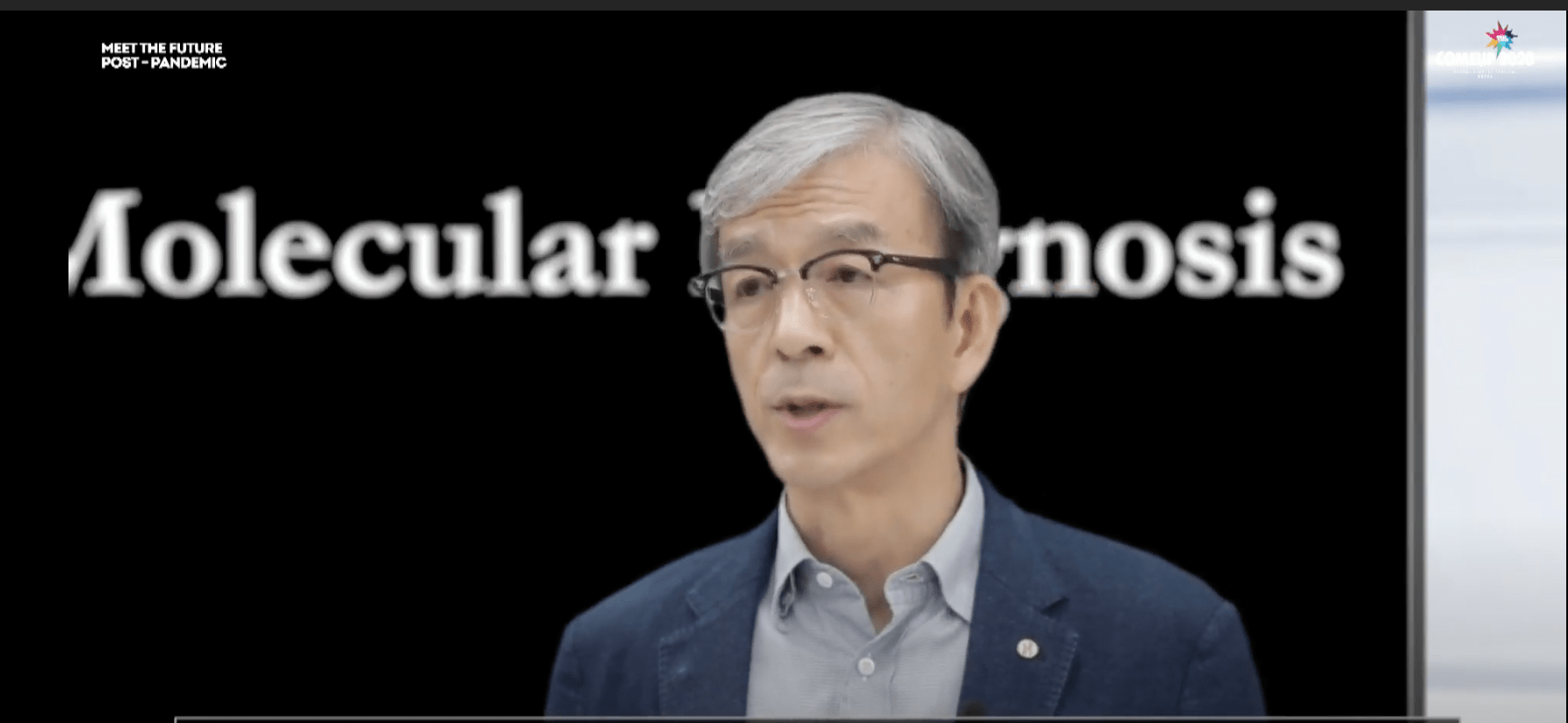
Agenda Talks
Director at the OECD Centre for Entrepreneurship, Regions & Cities, SMEs, Lamia Kamal-Chaoui spoke via video conferencing from Paris. Ms. Chaoui applauded South Korea’s efforts to control the outbreak of pandemic and the essence of COMEUP 2020 that fosters entrepreneurship in Korea. She also spoke about how businesses are adapting to the changing environment and how startups in European countries are innovating with technology.
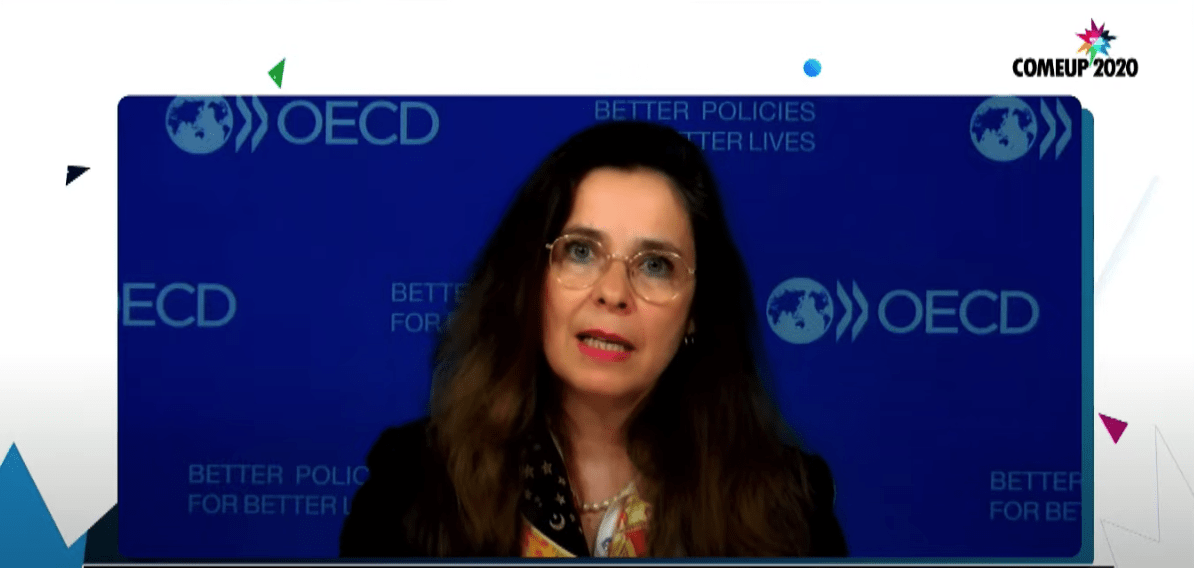
Panel Discussions
Several panel discussions and Q&A sessions were conducted on the first day of the event. The panel discussions included talks from some of the Korean individuals, who had developed various services that have helped the country in controlling the spread of COVID-19 in the country. Managing Partner of TBT, Jung Wook Lim moderated the discussion on the importance of entrepreneurship to overcome this pandemic.
The panelist for the session included Jin Yong Kim, Chief Physician of Incheon Medical Center, who introduced the idea of drive-through testing centres in South Korea, Yeo Hyun Ahn, Deputy Medical Director of Busan Nam-gu Public Healthcare Center, who is a frontline worker working at the public health centre and created a walkthrough booth to help in testing, Dong Hun Lee, CEO of Coronamap, the map that was used extensively to track coronavirus confirmed cases in South Korea and Joon Nyung Heo, Medical Officer of The Armed Forces Medical Command.
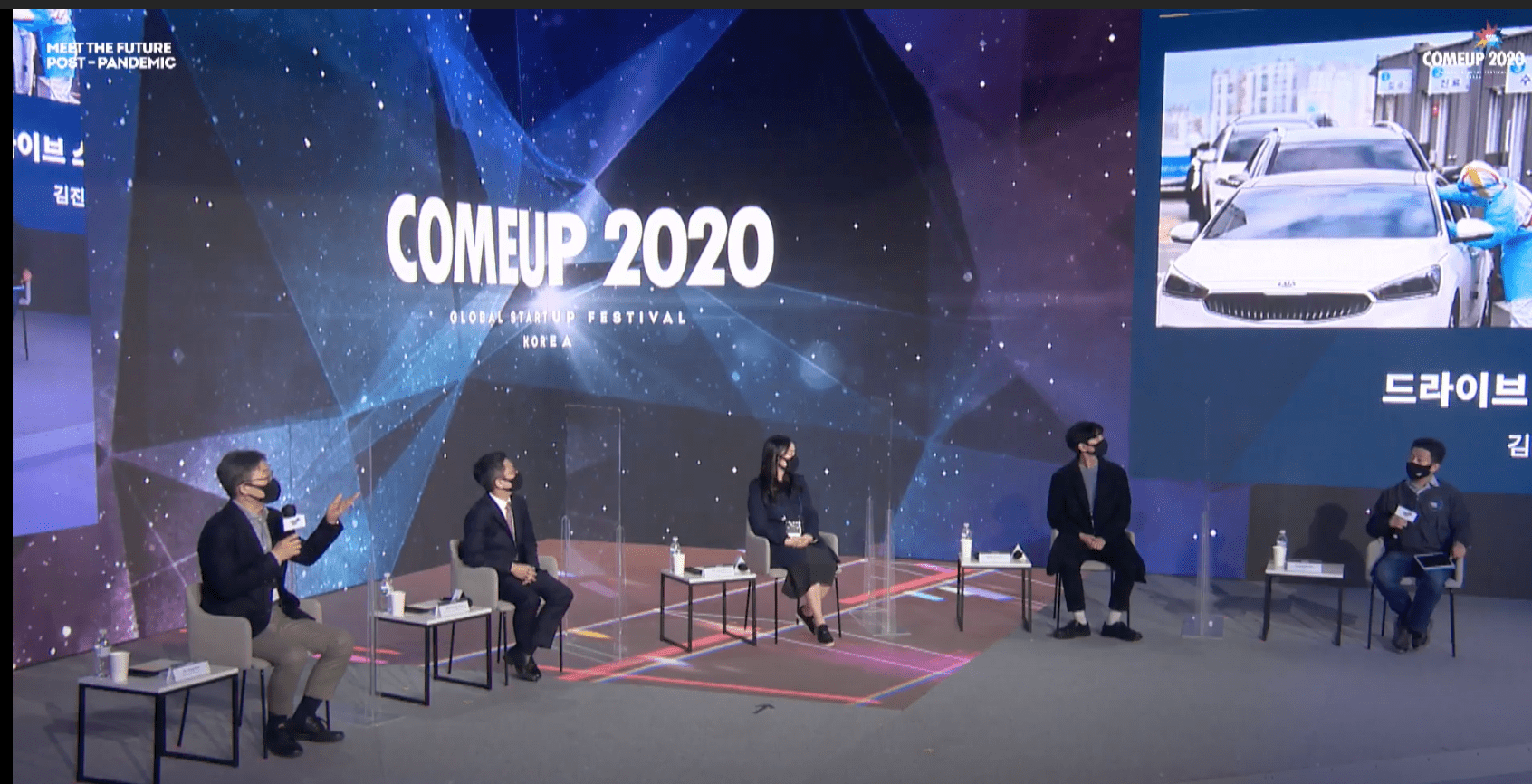
Some of the renowned panelists talked about the post-COVID-19 era policy changes and governance that may be required. Discussions were also made on the possibilities of decentralized society, protocols control, and changes to be brought in governance control, data storage, and data ownership and transfers, etc. The session concluded with what kind of governance and system is needed.
The panel experts included Jae Yeol Lee, Professor of Seoul National University, Simon Kim, CEO of Hashed, a Blockchain-based startup that works on decentralisation and Won Jae Lee, CEO of LAB2050, a company dedicated to studying future prospects till 2050.
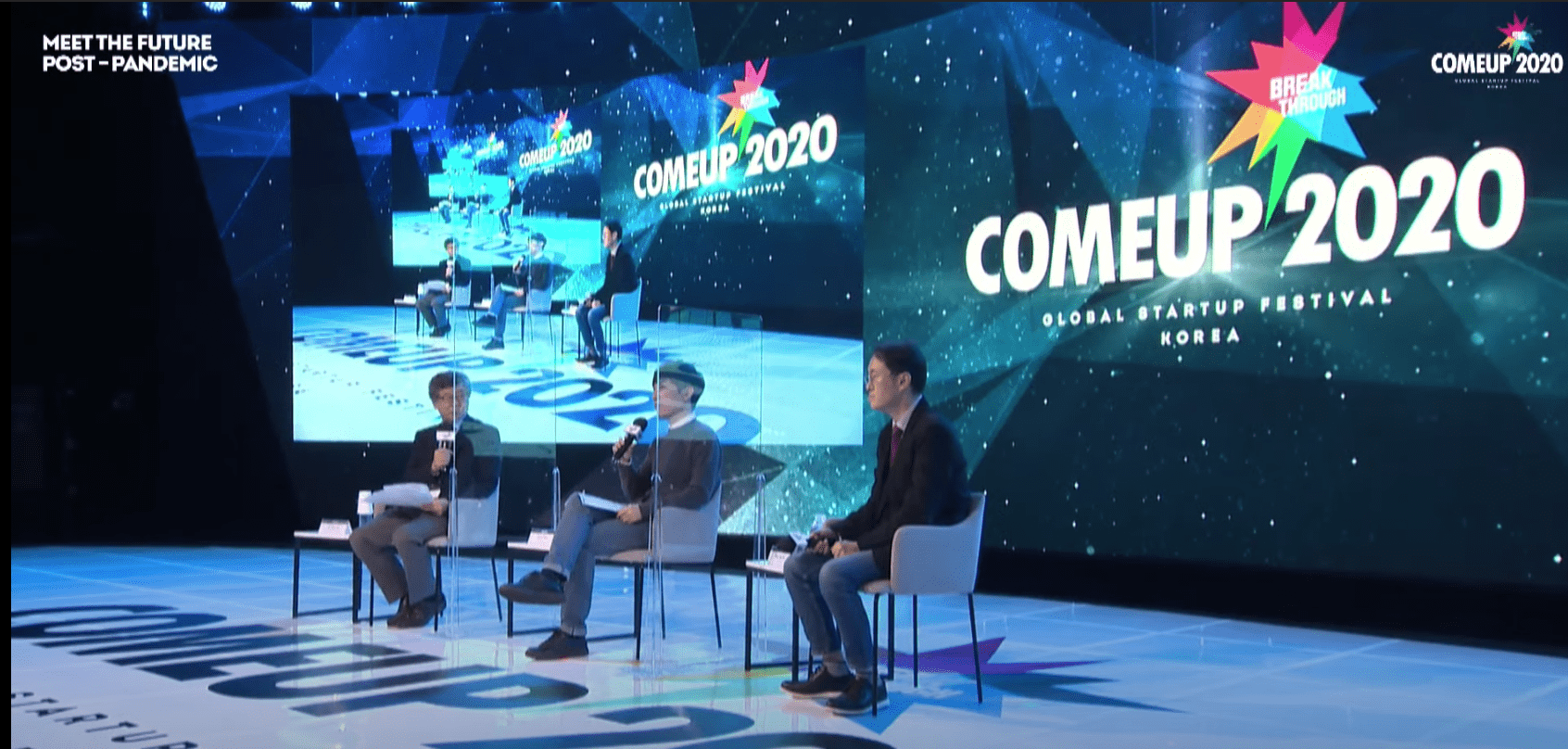
There was also a panel discussion held to discuss the challenge for Bio-Medical Devices startups in the post-pandemic world. The experts were from the frontline support system that dealt with the impact of coronavirus.
The panelists included Kil Soo Yang, CEO of Dearden, a AI-driven startup that is using deep device methods to help in drug development and prediction for drug discovery, Jong Cheoul Kim, CEO of MEKICS, a company that manufactures respirators in Korea and during pandemic supplied a lot of devices to hospitals and Won Soo Yun, CEO of T&R Biofab, a company that develops various temperature measuring devices and develops artificial organs like human heart and liver to help study drug response. The panel discussed challenges faced by biomedical device manufacturers, drug developers and what will be possibilities in business plans for such startups post the COVID-19 era.
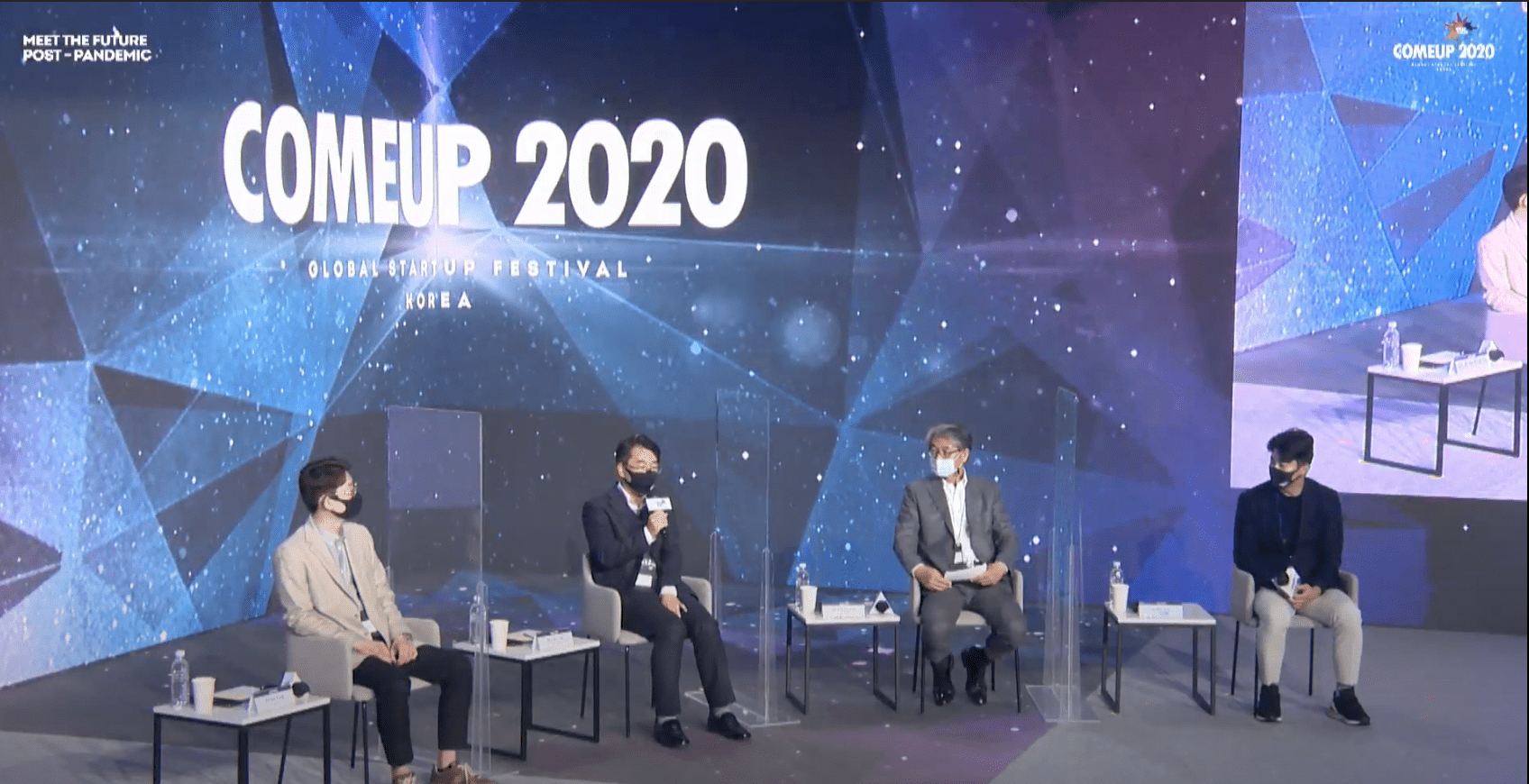
The founder of Weave, Songyi Lee moderated a panel discussion on policy innovations during the time of crisis. This panel discussion included many panelists- an e-Governance expert, TED speaker, and e-Estonia Briefing Centre Managing Director, Anna Piper; Founder and CEO of Startup Genome and a Silicon Valley serial entrepreneur, JF Gauthier; and the Vice President of Entrepreneurship of the Ewing Marion Kauffman Foundation, Philip Gaskin. The panelists spoke about how pandemic has affected each of their sectors.
The panel discussion on the environment was dedicated to the future of the climate change crisis and how startups can help to save the planet. The panelists discussed how their services and products are making a positive impact on the climate change issue and how businesses should work more responsibly towards environment.
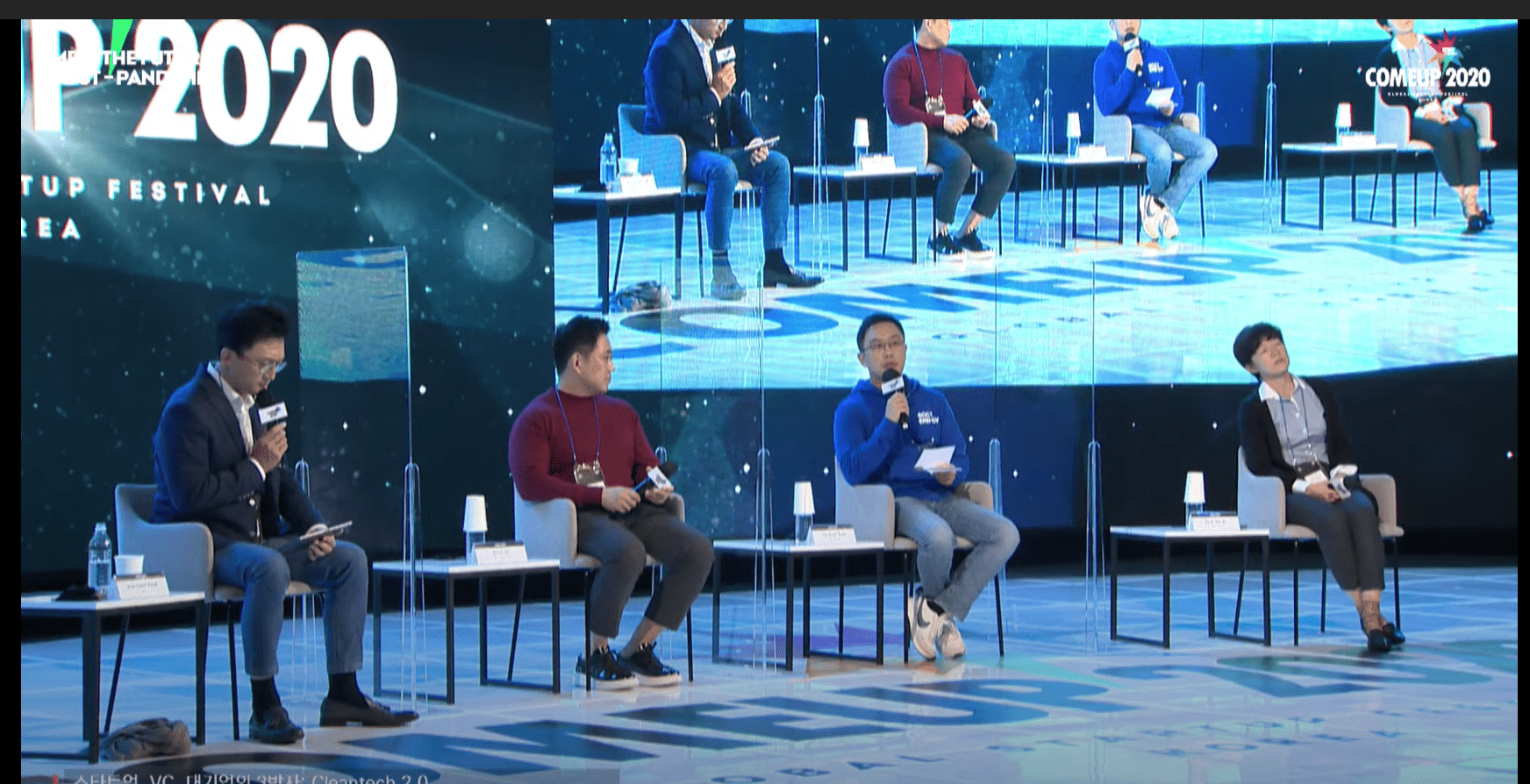
In healthcare, the panel discussion was done on how the latest technology and science can be used to help people change their habits and live healthier life. The discussions were also done on the business model for digital healthcare and the present and future of the non-contact healthcare industry.
Keynote speech: Climate Change, The Biggest Threat We Face
Emmanuel Lagarrigue, Chief Innovation Officer of Schneider Electric, talks about how climate change can impact businesses and why it is the need of the hour to work towards a sustainable world. He discussed the way forward for startups and entrepreneurs so that they can create new business models that can accelerate the energy transition.
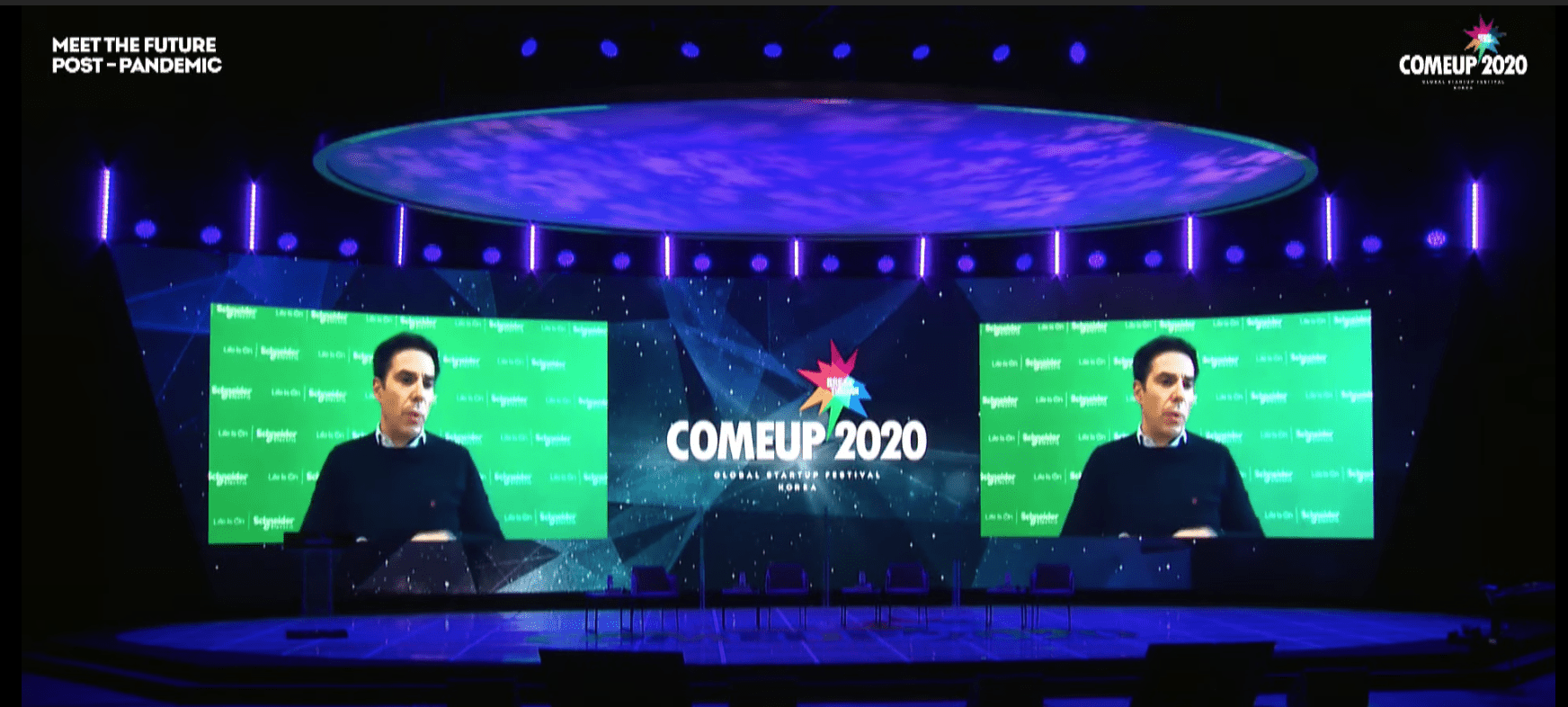
Emmanuel talked about how Schneider Electric is working to help entrepreneurs across the world through Schneider sustainability impact plan. “It is just about behaviour, to be consistent with values and how you drive your company, design your product, that will help you build sustainability,” said Emmanuel.
Keynote speech: The Behavior Change Revolution
Sae Ju Jeong, the CEO and co-founder of Noom, a pioneering behavior change startup disrupting the weight loss and healthcare industries, talked about how his startup has revolutionized fitness tech in the country. Noom was one of the companies mentioned by Sophie Kim, earlier in her talk. Noom leverages the latest science and technology innovations to help people change their habits and live healthier lives.
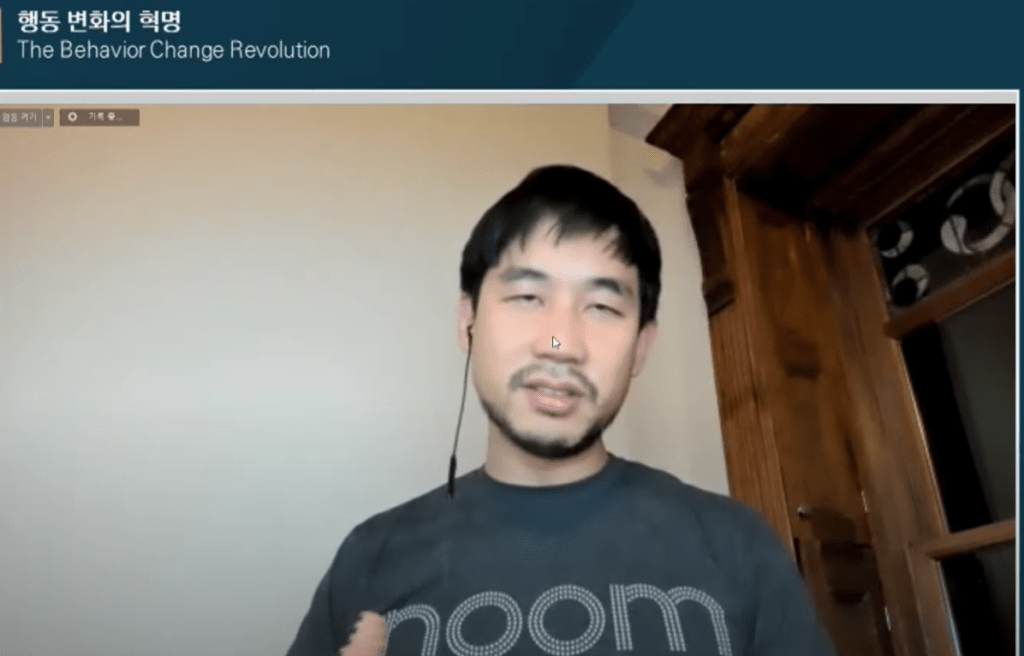
Chiweon Kim, a physician and a healthcare strategist, moderated the panel on digital healthcare. Brandon Suh, a board-certified physician in Family Medicine, Jung Taek Oh, Founder/CEO of E2E Health, Jack Lee, founder and CEO of Sky Labs, a startup based on data-driven preventive healthcare, and Alex Waldron, the Chief Strategy Officer at Pear Therapeutics, a pioneer in prescription digital therapeutics.
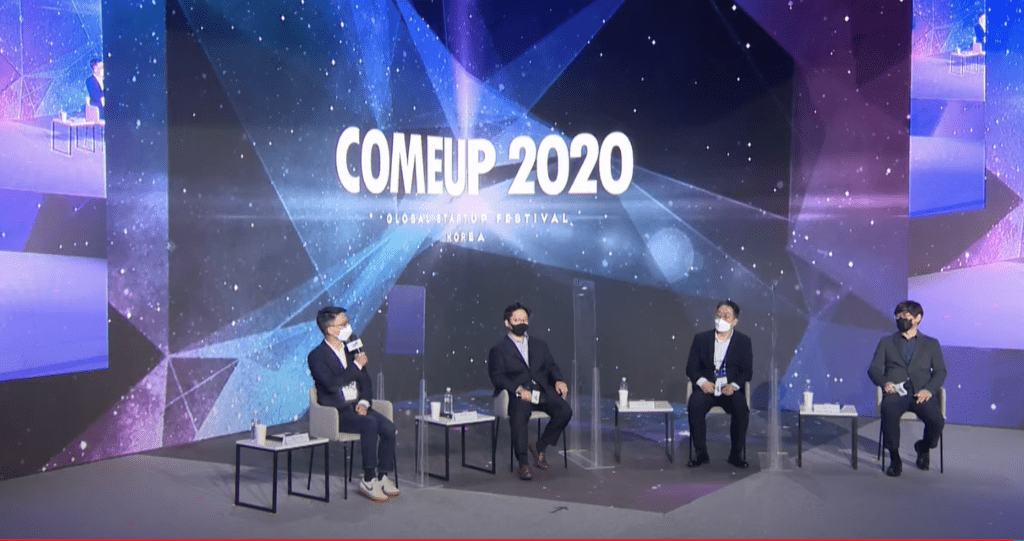
With COVID-19 era and the need for non-contact healthcare solutions, there is an increase in demand for online healthcare and telemedicine. The panel here comprised emerging entrepreneurs who have established digital healthcare solutions and are thriving in pandemic times. The panel talked about the future of e-healthcare and how it will prove to be an inevitable change.
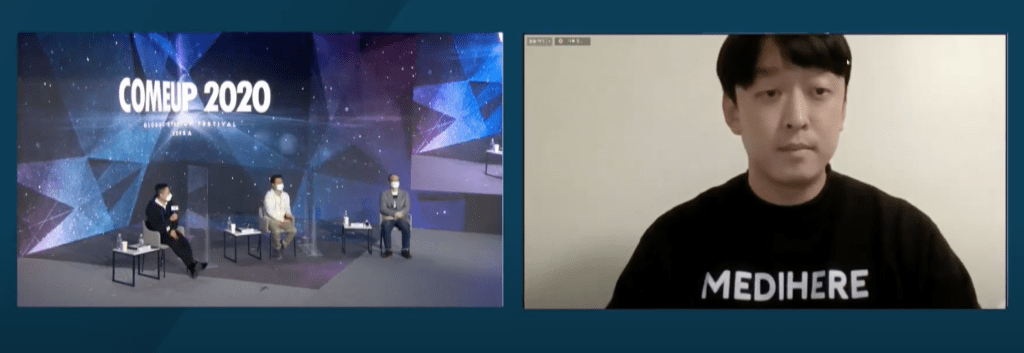
Yoon Sup Choi ,an interdisciplinary life scientist, medical futurist, entrepreneur, investor, and evangelist in digital healthcare, moderated the discussion. The panellists were Ki Hwan, Co-founder and CEO of MEDIHERE, a digital healthcare startup, Ho-Young Ban, co-founder/CEO of rehabilitation solution startup, Neofect
Doo Ah Choi is the founder and CEO of Hurry Positive, a digital healthcare startup focused on developing PHR(Personal Health Record) service platform and diverse digital healthcare software. Robbie Cape, co-founder 98point6 that provide consumers with on-demand access to affordable, high-quality care was also part of the panel.
COMEUP 2020 Awards and Demo-Day for K-Startup Grand Challenge startups
The event gave a sneak peek to the viewers at the 55 startups from 14 countries that were competing in the K-Startup Grand Challenge. These international startups have been part of the acceleration program in the Pangyo Campus for the last three months, preparing their businesses for Korea’s market.
The program’s aim was to select 25 finalists through the Demo Day event. The finalists received settlement support to continue their business in the country. Besides that, the top five teams received a grant for success.
The top five startup teams that received grants for 2020-21 were Grand prize to Ommo Technologies, second prize to Rocketship, third prize to Technology, fourth prize to Regulaxis SAS and fifth prize to Heart Force AG. Minister Park Young-sun, the Ministry of SMEs and Startups (MSS), South Korea gave the K-Startup Grand Challenge awards to the top five teams amidst a gala evening hosted for the global startups.
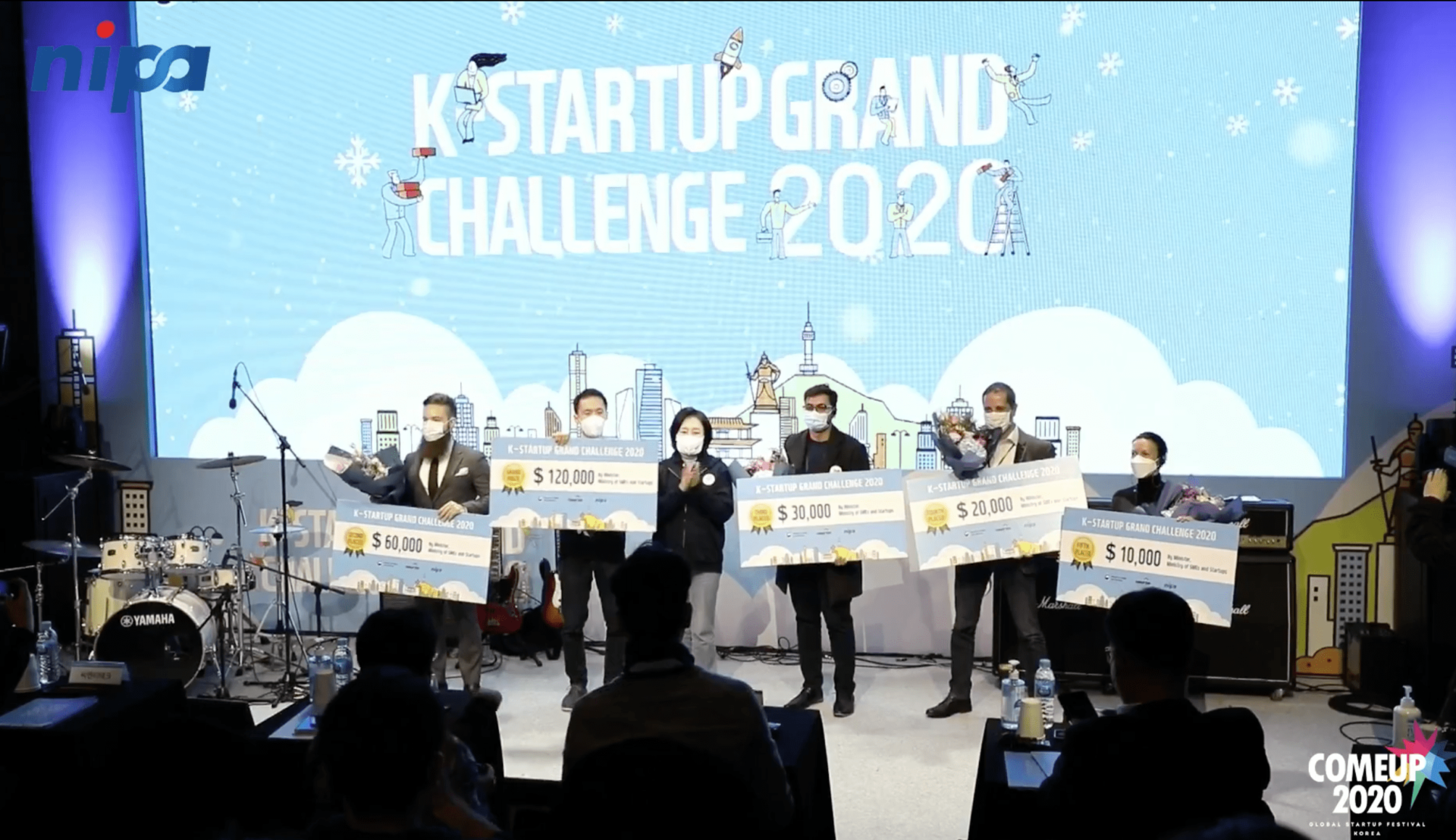
The K-Startup Challenge has continued to promote South Korea since 2016 as a global leading startup hub. The 5th program consisted of 2645 applicants from 118 countries which was a 33% increase from last year.
There were promotional activities for COMEUP STARS. These 120 Korean and global startups were selected from a list of 1075 applicants. All the selected startups got the support to create online booths free of charge, promotional videos, and additional opportunities to promote themselves to online investment, expert counseling sessions, global investors, and senior-junior networking.
These selected startups had undergone three stages of evaluation involving expertise evaluation, documents evaluation, open evaluation, and were selected from the COMEUP 2020 Organizing Committee. The selected startups were divided into ‘Rookie League’ and ‘Rocket League’. The Rookie League consisted of 36 startups that had less than 500 million Won as an investment within the last 3 years of being in operation. Whereas, the Rocket League consisted of 84 startups that were exceptional and presented a vision in accordance to the twelve sessions of Digital Healthcare, Open Innovation, K-Quarantine, Environment, AI& Big Data, Remote Work, Robotics, Commerce, Manufacturing, Education, Distribution, and Entertainment.
Special Sessions
There were various special sessions also held on Day one of the event. James Jung, executive director of COMEUP 2020 and beSUCCESS media group CEO talked with the CEO of SLUSH, Miikka Huttunen. They discussed supporting startups and tech companies around the world and connecting European investors with startups across the globe. There were also discussions on the challenges that this pandemic poses and they also talked about the Korean government’s initiatives to support the startup ecosystem in Korea.
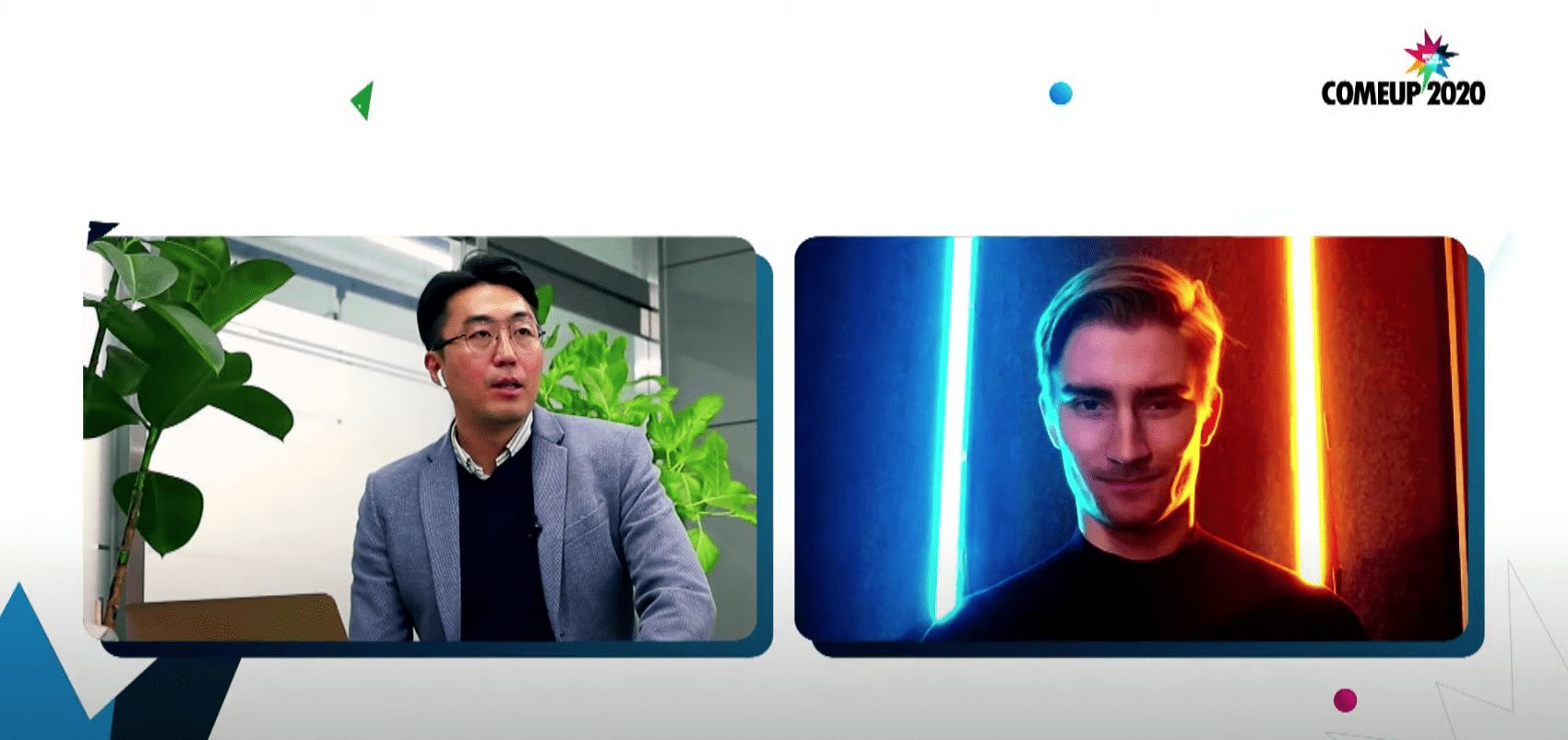
Side Events
Founder Networking Sessions-
These sessions are created for emerging startups to network with established startups and Q&A via real-time chatting. The session was headed by Sophie Kim, chairperson of COMEUP 2020 organizing committee and CEO of Market Kurly.
Investment Workshop-
KB Investment had organized an investment workshop where the director of KB Investment, Ji Ae Lee was the speaker. The startups can chat in real-time with the investors and ask them questions.
Besides the above programs, COMEUP 2020 had also organized a backstage Q&A session with the panelists.
Stay tuned as we bring you exclusive insights from COMEUP2020.


